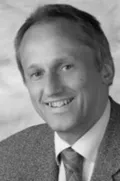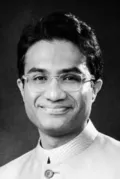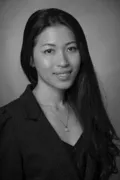Der Lehrstuhl für Statik und Dynamik der Ruhr-Universität Bochum befasst sich mit Lehre und Forschung zur Entwicklung von Rechenmodellen für die Prognose von Material- und Strukturverhalten. Der Lehrstuhl besteht aus folgenden Forschungsgruppen:
- Scale Bridging Modelling of Materials and Structures
- Computational Intelligence and Structural Reliability
- Computation Modelling in Tunnelling and Underground Structures
Ziel des Forschungsbereichs „Scale-bridging Modelling of Materials and Structures“ ist die Charakterisierung und das Design von Materialien und Strukturen unter Berücksichtigung von Eigenschaften auf verschiedenen Längen- und Zeitskalen. In der Forschungsgruppe Computational Intelligence und Structural Reliability wird eine Kombination aus Künstlicher Intelligenz (KI) und Structural Reliability eingesetzt, um das Strukturverhalten von Ingenieurbauwerken vorherzusagen und zu optimieren.
Projektmitglieder
Prof. Dr. techn. Günther Meschke
Principal Investigator
Prof. Dr. techn. Günther Meschke is the Head of the Institute for Structural Mechanics of the Ruhr University Bochum and coordinator of the SFB 837 as well as of the Research Department “Subsurface Modeling & Engineering”. Prof. Meschke is Member of the German Academy of Science and Engineering (acatech), the North Rhine-Westphalian Academy of Sciences, Humanities and the Arts, the Academia Europaea, an associate member of the Austrian Academy of Sciences and a member of the Austrian Science Board. He is the author of over 370 scientific publications.
Focus of his research is computational structural mechanics with an emphasis on multifield and multiscale models for porous and fiber-reinforced materials, numerical simulation models for underground construction (tunneling, geothermal energy systems), and lifetime-oriented analysis of structures.
Dr.-Ing. Jithender Jaswant Timothy
Principal Investigator
Dr. Jithender J. Timothy is a Research Group Leader at the Centre for Building Materials, TU Munich. His research interests are model-based characterization and design of materials using scale-bridging computational methods.
He received a Master degree and a Ph.D. (Dr.-Ing.) with distinction in Computational Engineering from Ruhr University Bochum in 2010 and 2016 respectively. His doctoral dissertation was awarded the Dr. Heinrich-Kost Prize for developing a new paradigm in the multiscale characterization of disordered porous materials. From 2017 - 2021 he led research group ‘Scale-Bridging Modelling of Materials and Structures’ at the institute for structural mechanics, Ruhr University Bochum.
Thi Truc Giao Vu, M.Sc.
Research Associate
Giao Vu has completed her Master in Computational Engineering with distinction from Ruhr University Bochum in 2019. In the Coda project, her role is to develop a multiscale model for concrete damage that takes into account the influence of the microstructure. At a later stage of the project, she is responsible for the classification of damage levels and Coda signals using machine learning.



